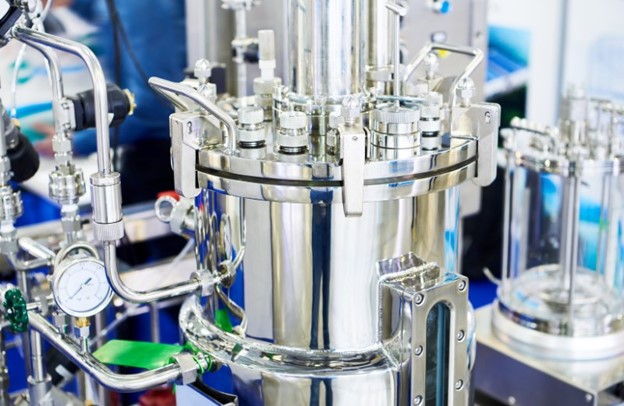Expert Witness – Microchannel Reactors
Microchannel reactors are compact chemical reactors with channels on the micrometer scale, typically ranging from tens to hundreds of micrometers in size. These reactors offer several advantages over traditional reactors, including enhanced heat and mass transfer, improved reaction kinetics, and increased surface area-to-volume ratios. Microchannel reactors are used in various chemical processes, including synthesis, catalysis, hydrogenation, and separation.
Types of Experts That Assist with Microchannel Reactors:
- Chemical Engineers: These experts normally specialize in the design, operation, and optimization of chemical processes, including the use of microchannel reactors. They possess expertise in fluid dynamics, heat transfer, reaction kinetics, and process optimization.
- Materials Scientists: These experts focus on the selection and characterization of materials used in microchannel reactors, such as metals, ceramics, and polymers. They evaluate material properties, compatibility, corrosion resistance, and durability.
- Process Chemists: These experts specialize in organic and inorganic chemistry and provide insights into reaction mechanisms, kinetics, and selectivity within microchannel reactors. They help design and optimize reaction pathways for specific chemical syntheses.
- Mechanical Engineers: These experts contribute to the design, fabrication, and testing of microchannel reactor systems. They optimize reactor geometries, ensure structural integrity, and develop innovative solutions for manufacturing and assembly.
- Safety Engineers: These experts focus on assessing and mitigating potential safety hazards associated with microchannel reactor operations, including pressure buildup, thermal runaway reactions, and chemical spills. They develop safety protocols and risk management strategies.
Types of Litigation
Lawsuits involving microchannel reactors arise from various scenarios, often related to their design, operation, maintenance, or the products and processes they are used for. Some common lawsuits involving microchannel reactors include:
- Product Liability: Claims may arise if a microchannel reactor malfunctions or fails, resulting in property damage, personal injury, or environmental harm. Plaintiffs might allege defects in design, manufacturing, or warnings, leading to unsafe conditions or inadequate performance.
- Contract Disputes: Disputes may arise between parties involved in the design, fabrication, installation, or operation of microchannel reactor systems. Contractual issues such as breaches, delays, cost overruns, or disputes over specifications and performance guarantees could lead to litigation.
- Intellectual Property Infringement: Lawsuits may arise over patent infringement or misappropriation of intellectual property rights related to microchannel reactor technologies, designs, processes, or materials. Parties might allege unauthorized use, reproduction, or distribution of patented inventions or trade secrets.
- Environmental Contamination: If a microchannel reactor system fails or leaks, resulting in the release of hazardous chemicals or pollutants into the environment, lawsuits may ensue. Plaintiffs, including regulatory agencies or affected communities, may seek damages for cleanup costs, property devaluation, or health impacts.
- Personal Injury Claims: Injuries or illnesses resulting from exposure to hazardous substances or conditions associated with microchannel reactors could lead to lawsuits. Plaintiffs might allege negligence, failure to provide adequate safety measures, or violations of occupational health and safety regulations.
- Business Disputes: Disputes between companies involved in the development, licensing, or commercialization of microchannel reactor technologies or products may lead to lawsuits. Issues such as breach of contract, fraud, unfair competition, or tortious interference could be litigated.
- Regulatory Compliance Violations: Non-compliance with regulatory requirements governing the design, operation, or disposal of microchannel reactors could lead to lawsuits brought by regulatory agencies or enforcement actions. Alleged violations could include failure to obtain permits, inadequate monitoring, or improper handling of hazardous materials.
- Insurance Coverage Disputes: Insurance disputes may arise if claims related to microchannel reactor incidents trigger coverage disputes between insured parties and insurers. Issues such as coverage limits, exclusions, or policy interpretations could lead to litigation.
How Microchannel Reactor Experts Might Assist in Lawsuits:
- Technical Analysis: Experts can conduct detailed technical analyses of microchannel reactor systems involved in lawsuits, including design specifications, operating conditions, and performance parameters. They assess whether the reactor design and operation comply with industry standards and best practices.
- Failure Analysis: In cases of reactor malfunctions or accidents, experts conduct failure analyses to determine the root causes, such as material defects, design flaws, or operational errors. They assess whether negligence or misconduct contributed to the failure, and provide recommendations for preventing future incidents.
- Regulatory Compliance: Experts evaluate whether microchannel reactor systems comply with relevant regulatory requirements, such as safety regulations, environmental standards, and occupational health guidelines. They assess whether the defendants adhered to applicable laws and regulations governing reactor design, operation, and maintenance.
- Expert Testimony: Experts provide expert testimony in court, presenting technical analyses, findings, and opinions related to microchannel reactor systems. They explain complex scientific concepts in layperson terms, helping judges and juries understand the technical aspects of the case.
Expertise from LEC Partners
At LEC Partners, we offer various services across virtually every facet of the bioeconomy. While serving as expert witnesses represents only a fraction of their responsibilities, most of our 180+ experts are available to provide their expertise as expert witnesses. Like any reputable expert witness, our specialists consistently deliver impartial and unbiased results. They have undergone rigorous in-house training on their role in litigation, understand the Daubert qualification standards, and are versed in the rules of evidence and civil procedure applicable to experts. Before accepting any assignment, we meticulously assess whether the experts possess the necessary specialization and conduct thorough conflict checks. If you need assistance with microchannel reactors, please contact us.
Have some questions?
Not sure where to start?
Let's start a conversation. We're here to help you navigate
the bioeconomy with confidence.

